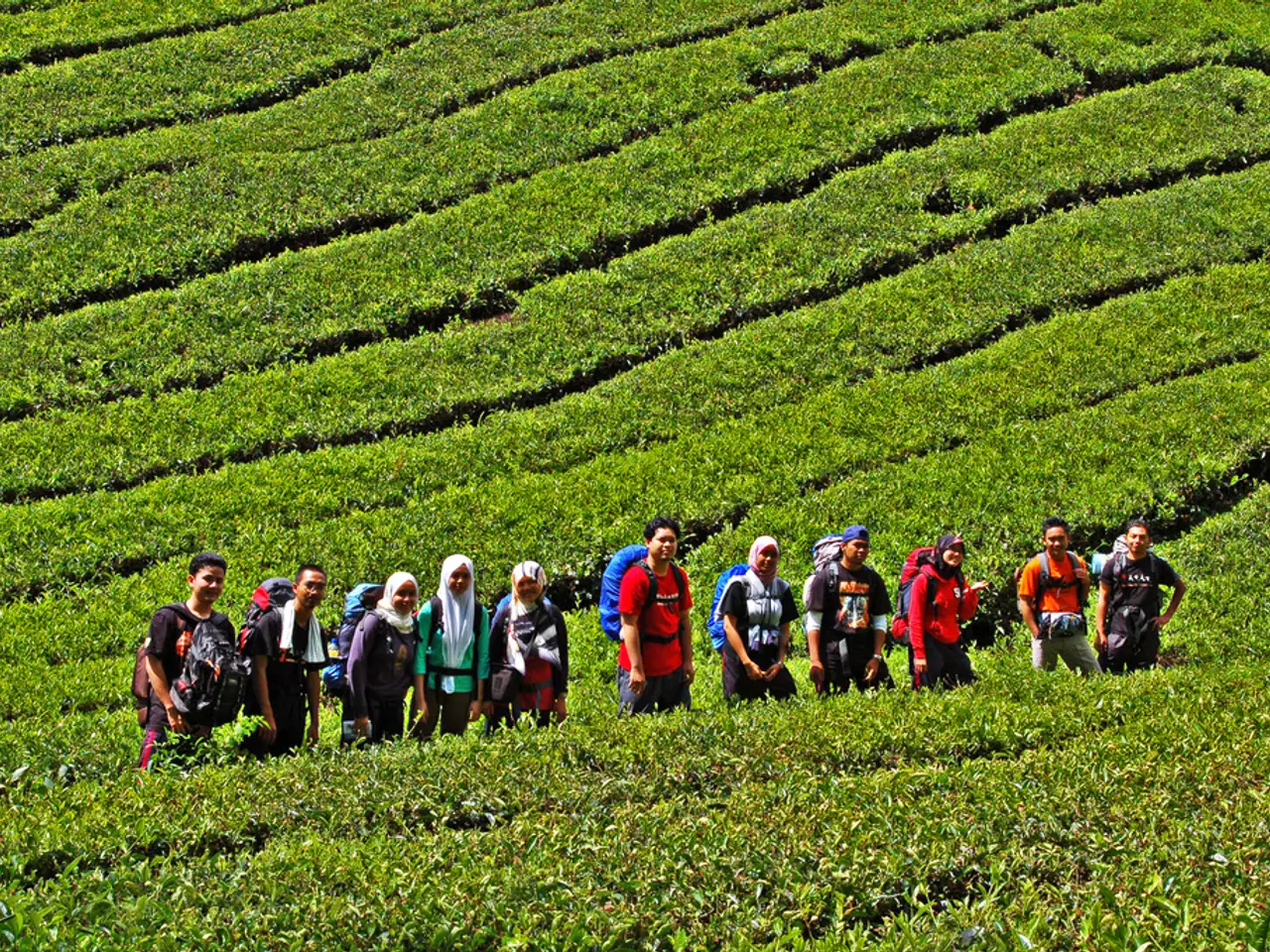Securing the Property Ownership for Small-Scale Farmers
Strengthening Land Rights for Marginalized Communities: The UN Voluntary Guidelines on the Responsible Governance of Tenure
The United Nations Voluntary Guidelines on the Responsible Governance of Tenure of Land, Fisheries, and Forests (VGGTs) are a significant step towards promoting secure and equitable tenure rights worldwide. These guidelines, passed by the United Nations Committee on World Food Security in May 2012, offer principles and standards for governments, civil society, and private actors to follow in governing tenure in a manner that supports transparency, equity, and sustainability, particularly in the context of food security and poverty alleviation.
The VGGTs place a strong emphasis on legal recognition and protection of tenure rights for vulnerable groups, such as smallholders and indigenous communities. By encouraging participatory, inclusive approaches to tenure governance, these guidelines aim to ensure that these communities can access, use, and control land, fisheries, and forests without discrimination or dispossession. The guidelines also address conflict resolution mechanisms, promote transparency in land administration, and stress the importance of gender equality and respect for customary tenure systems.
In Bolivia and Peru, the VGGTs are being implemented to secure the land rights of smallholders and indigenous peoples. This is being achieved through various means, including:
- Supporting legal frameworks that recognize indigenous customary tenure systems alongside formal land titles.
- Enhancing capacity-building and awareness among government bodies and local communities to implement tenure reforms that respect indigenous rights.
- Encouraging participatory mapping and documentation processes to clarify and register community lands.
- Promoting conflict resolution and grievance mechanisms accessible to indigenous and smallholder groups.
- Aligning tenure governance reforms with national food security and sustainable development goals, thereby protecting community livelihoods and biodiversity.
By implementing the VGGTs, Bolivia and Peru hope to reduce tenure insecurity that can lead to land conflict, displacement, and unsustainable use of natural resources. This, in turn, empowers indigenous peoples and smallholders to sustain their socio-economic and cultural well-being.
German non-governmental organization Welthungerhilfe is playing a key role in promoting the VGGTs. In collaboration with its partners, the organization is developing an interactive data platform for compiling and disseminating legal developments and practical experiences regarding land use. Welthungerhilfe is also educating government representatives and community officials on the contents of the guidelines, conducting intensive educational efforts to ensure all actors are familiar with the content, and developing strategies with various actors to influence political opinion-makers in favor of the guidelines.
Pedro Castillo, a Peruvian, believes that properly applied, the VGGTs could secure the smallholders' right to food in the long term and prevent conflicts. He sees the guidelines as a valuable tool for promoting social justice and environmental sustainability in rural areas.
It's important to note that the implementation of the VGGTs is voluntary. However, by fostering dialogue with all involved parties and finding constructive solutions to secure smallholders' land rights, organizations like Welthungerhilfe are working towards making these guidelines a reality. The VGGTs represent a significant step forward in ensuring secure and fair access to natural resources and conditions for land investment, ultimately contributing to global food security and sustainable development.
- In the field of education-and-self-development, Welthungerhilfe is actively imparting knowledge about the VGGTs to government representatives and community officials, aiming to create a widespread understanding of these guidelines and their potential impact on food security and environmental-science.
- As a part of their long-term strategy for food security, some individuals, like Pedro Castillo, advocate for the integration of environmental-science principles in sports programs, using games and activities to educate young people about sustainable land use and the importance of adhering to science-based guidelines such as the VGGTs.




